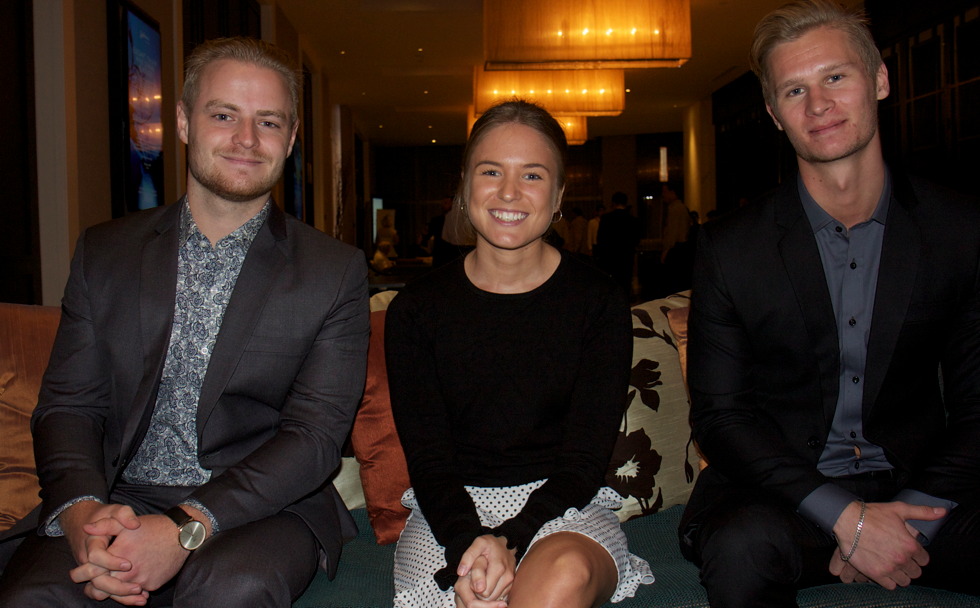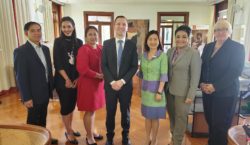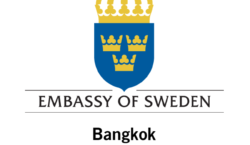Lisa Myrnäs, Max Kellert and Oscar Ågren are in the final year of their Borås University studies and among those who has come to Bangkok’s Panyapiwat Institute of Management, PIM, as exchange students during the 2017 autumn term.

All three are satisfied as they are approaching the end of the term, with no regrets.
“It feels like a rewarding experience, both regarding the global perspective, that one is studying in another way with more focus here, and to get to meet a lot people from other countries and get new perspectives feels useful,” says Oscar.
“It feels like one will be more patient upon returning home after this!” says Lisa and adds: “I absolutely think it is rewarding to study together with other international students; it feels like one learns a lot aside the actual education – to learn to interact with people from other cultures.”
“Everyone is not like us, which one gets to learn here and one must to accept that, and solve it in the best manner. Oftentimes one can get better solutions from people from other countries too. It’s easy to think that one knows best at solving problems. But to be patient and listen there is always a solution,” thinks Max.
A stamp of approval for PIM may come from a Swedish lecturer, Roy Andersson: “He compared this with other schools and said that one has to perform things one actually learns here, compared to many other Thai schools he has been to,” says Lisa.
They have learned more practical things says Oscar.

“Back home it is more one’s own responsibility. Here you get assignments every week, which we don’t have in Sweden. There you may make exam tests and submit some work in the end while here you have that every week in every subject, to do some smaller tasks. That’s the largest difference,” adds Lisa.
“Company visits are connected to every course so we get to see and learn the topics from the perspective or the corporate world as well,” says Max.
Compared to back home they agreed that it is very different in Thailand: “Just the thing that in Bachelor courses it’s a requirement to attend so you stamp in and out when attending a classroom every time, with extremely high pressure to attending classes, says Oscar.
“And during the lectures it is not just about listening. It is more hands-on here, with tasks to solve in groups,” adds Max.
Commenting on their education that mixes IT and economy they are all very positive. Currently, it feels very relevant to mix IT and economy, thinks Max and Oscar.
“We are learning more the backbone of programming; the conceptual part,” says Oscar.
“I’m very satisfied to have the opportunity of getting such an education where it is combined. It feels like that will pay off a lot,” thinks Lisa.
“Nowadays, IT and economy comes together within most parts in society and if you have gained an understanding of both it makes things much easier for us. You don’t need to be a specialist on everything but to have a basic knowledge of IT,” adds Max.
In a future management role, he believes he will most likely get to work with team members involved in IT in various ways and will be able to understand and communicate with them.
See also: Håkan Alm spearheads the economic-IT academic combo


